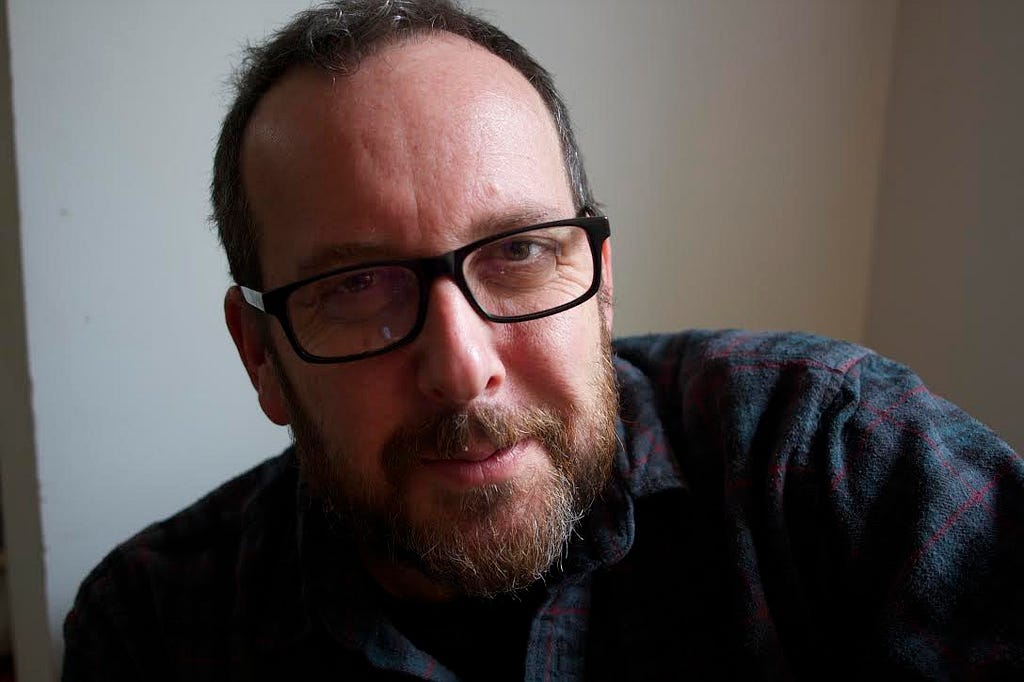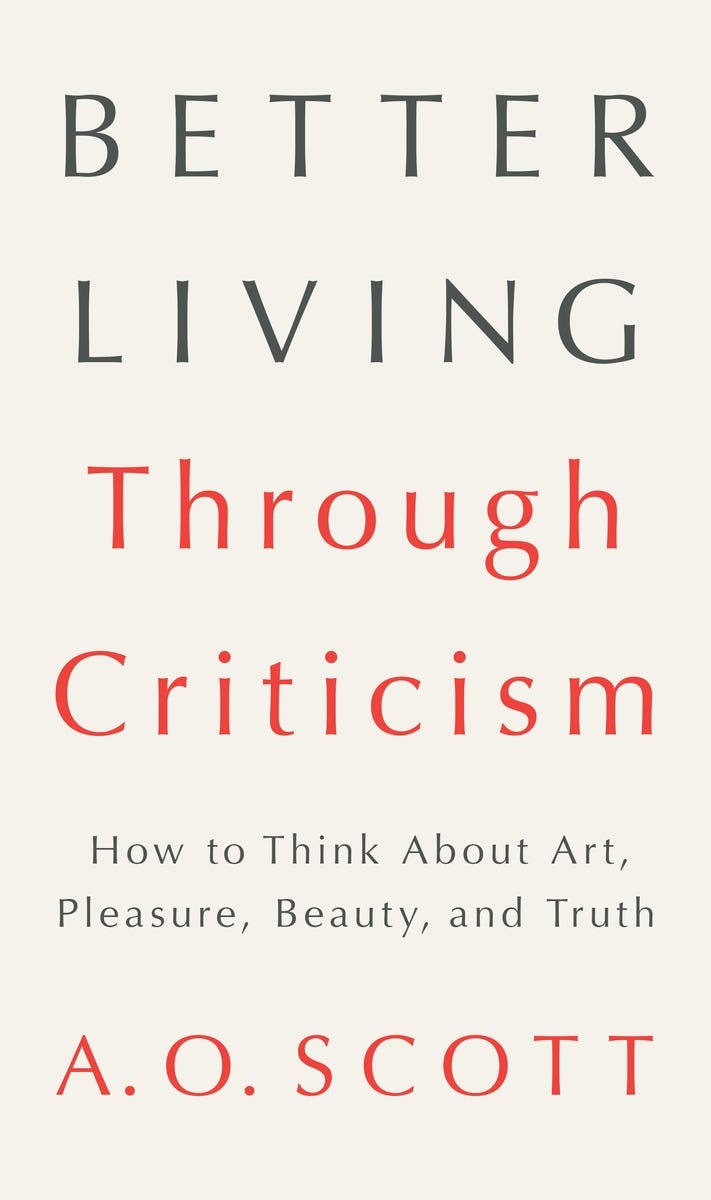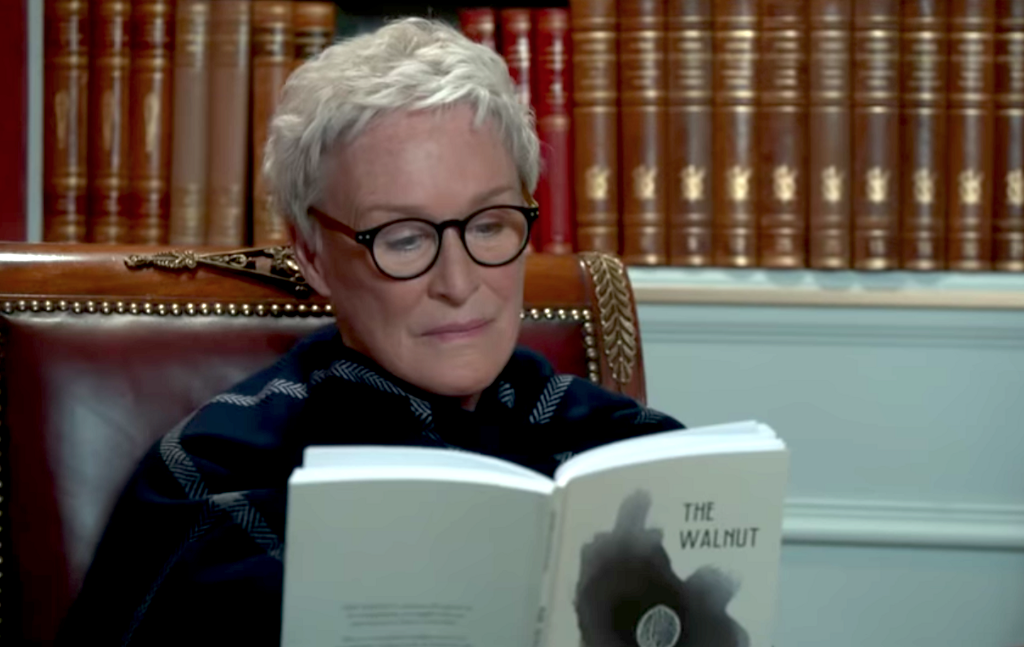Craft
A.O. Scott on Anti-Intellectualism in America, Negative Reviews, and Watching Movies with His Family

by Megha Majumdar


“Every working critic,” writes A. O. Scott in his debut book, Better Living Through Criticism, “could easily assemble, from discarded letters and deleted e-mails, a suite of variations on the themes of ‘You’re just jealous’ and ‘I’d like to see you do better.’”
It would be hard to make the case that Scott, co-chief film critic of The New York Times, is a failed artist turned bitterly to an inferior vocation. Though he has reviewed nearly two thousand movies for the Times, which he joined in the year 2000, he has never wanted to make a film. His has always been the region of criticism, which, in this book, he defends as a form of art.
Neither fault-finding nor complaint, criticism is rather the creation of possibilities for engagement. If its responsiveness to the world develops from an impulse that could only be called artistic, we might even think of criticism as the most encompassing art, its gaze equally capable of considering painting and dance, Broad City and Macbeth.
Better Living Through Criticism, which comes out today from Penguin Press, is a serious text. Intellectually spry, its major argument made robust by visitations with Keats, Susan Sontag, Marina Abramovic, and many others, the book is also leavened by Scott’s humorous acknowledgment of the insults casually tossed at his profession. Scott moves nimbly between the stances of learned critic and fellow consumer, drawing on reserves of knowledge about the history of art at the same time as he observes how a painting — the Mona Lisa, say — is truly encountered: not in rapture or surrender to beauty, but alongside a few dozen tourists jostling to take pictures on their cell phones, any trace of the sublime lost to “museum fatigue” and the duty, more or less, to visit the Louvre when in Paris.
Such are artistic encounters in our times. It is exactly why this book is vital. We need criticism — not to bore us all or drain the fun, as a common line of thinking goes — but to extend our thoughts beyond ourselves even when our circumstances appear to resist rigorous thought. We might then be able to consider, with delightful intricacy, whatever we see.
Scott, whose comportment is as everyman as his thought is exceptional, met me on a sunny afternoon in Brooklyn. More than an hour passed while we discussed anti-intellectualism in America, negative reviews, and his thoughts on Hail, Caesar!, which he watched not for review purposes, but with his family, at a packed theater, on the weekend.
Megha Majumdar: What is the process of reviewing a movie? Do you watch a movie in a dark theater just like the rest of us, except you’re also taking notes?
A.O. Scott: Pretty much. The notes are rarely legible. Sometimes we’ll go to a screening room so it’s all critics. Other times it’s a screening with a section for critics, so I will be surrounded by an actual audience. That’s usually true for action movies, comedy, and horror. It’s useful to be able to read the room. Sometimes I get a chance to watch a movie more than once — if I saw it at a festival, then again closer to its wide release — but usually, I watch it just a week or a couple days before it opens. I have one shot. I have to stay awake, pay attention and make sure I spell all the names right.
MM: What experiences led you to think that a defense of criticism is needed right now?
AOS: I began thinking about this book in 2011. That year was a high point of internet utopianism. There was going to be Yelp and social media. Various cool algorithms were going to figure out what you liked. There would be no need for traditional media. Many journalists, among them critics, lost their jobs. And nobody except other critics felt particularly bad about it.
I thought it was shortsighted and triumphalist. I wanted to explain what was wrong with this view, without just defending my own position and privilege.
There was also a piece by Dan Kois in The New York Times Magazine about the notion of “cultural vegetables.” That is, things you’re supposed to like that are not fun, but that are good for you. The idea is that critics and other cultural authorities are trying to force you to see weird foreign movies or read long, abstract books. The piece was about how you should like what you like, and not get bossed around. That piece bothered me. I thought, is there a way to respond to that without fitting into the role it’s setting up? How to say, well, that’s not what criticism is?
So I wrote up a proposal and thought, I’m going to write a short book about why criticism matters. I’d write it in a year. How hard could it be?
Very soon after that I found myself in philosophical quicksand, dealing with problems that had bedeviled philosophers for centuries. Why do we like what we like? What’s the relation between beauty and truth? And so on. So it was harder than I’d thought it’d be.
MM: You point out that there’s a strong strain of anti-intellectualism in America. “Anti-intellectualism is virtually our civic religion,” says the book. Why do you think thinking is so maligned? Is it a particularly American problem — making fun of “nerds,” for example?
AOS: It does have a particular history in America. The historian Richard Hofstadter wrote a book in the 1960s called “Anti-intellectualism in American Life,” in the wake of McCarthyism. I don’t think you could write a similar book about anti-intellectualism in French life.
MM: In France, philosophers appear on TV.
AOS: Right. In England too, you could turn on the TV and see writers and philosophers. They’re on their money, and on their stamps.
…the defense of a consumer’s right to do whatever they want and have a good time, and to not reflect about experience, is a kind of fake populism.
There is, in the United States, a tradition of suspicion and mistrust of experts. Some of it is a healthy, democratic, anti-authoritarian impulse. But the defense of a consumer’s right to do whatever they want and have a good time, and to not reflect about experience, is a kind of fake populism.
MM: That’s a strange argument, because thinking for yourself is the most democratic thing you could do.
AOS: I consider myself a populist, but I think that the defense of the right of the audience to be left alone, and not be bothered by difficult questions, is really a defense of publicity and advertising. It’s a way of selling things to people with little resistance. It’s a way of marginalizing not just professional critics, but the critical potential of the audience.
MM: What I like about this book is that it has a great deal of respect for incompleteness, for the absence of resolution. The work of criticism, it says, is to constantly produce openings for engagement. How do you see that meeting the critic’s task of judgment?
AOS: That’s an excellent question. That tension is really the heart of the book. My view is that all the noise — the racket of takes and counter-takes, of endless opinions — is a symptom of cultural health. As soon as a work of art stops being discussed, that’s the minute it dies. It becomes something that’s taught in school, and that has little connection to people’s lives.
So, as a critic, you can have all these positions — upholding traditions, valorizing the new, pitting high culture against low culture, and so on. But the thing is, once you’re doing criticism, you have to commit to one argument. You need to figure out where you stand, and formulate your own principles or intuitions.
But you also have to be humble about it: This is my best shot. I think it’s important to acknowledge that you will never have the last word. You’re contributing your voice to something that’ll keep going.
MM: Speaking of words, you list adjectives that critics try to avoid. “Astonishing,” “beautiful,” and so on. Some of those are the very words that appear on book jackets.
AOS: Right. Let me say that, while that’s my pet peeve, to see those disembodied words — “stunning” — on covers, now that I have a book that’s being reviewed, I sometimes wish there were more of those. I’ve read a couple reviews [of Better Living…] that were very smart and thoughtful. They really engaged the book. And I’ve thought, Couldn’t you get a “brilliant” in there, so we can use it? I’m a hypocrite about that now (laughs).
MM: Staying with words, do you think it’s limiting in the first place to use writing to apprehend film?
AOS: There are critics now, like Matt Zoller Seitz and Kevin Lee, who are developing the use of video as a medium of film criticism. There are some rights and intellectual property issues there, as I learned when I tried to do film criticism on television, but it’s happening.
Language is what most of us have, and the constraints can be good. To try to describe something in such a way that people can imagine it before they’ve seen it — that’s part of the craft. When I was a kid, I read a lot of reviews of movies that I never saw, or that I saw much later. If I was reading Pauline Kael, her writing was so lively I could get a sense of what these movies were like.
MM: You started your career writing book reviews.
AOS: After an inconclusive stint at graduate school, yes, I wrote for the Nation, Village Voice, for the New York Times Book Review and other places on a freelance basis. I worked on the editorial staff at the New York Review of Books, and I was also an editor at a magazine called Lingua Franca that was a wonderful, strange magazine in the 1990s. The first real full-time writing gig I ever did was at New York Newsday, which, in the mid-late 1990s, had a Sunday book review section. I had a regular column there.
MM: How is reviewing movies different from reviewing books?
AOS: Not being able to quote is a big difference, and not being able to stick sticky notes between the pages (points at my book).
The thing that I still find hard is that movies synthesize so many art forms — you can write about the music, or the cinematography, or the performances, and so on.
I went to see the Coen brothers’ Hail, Caesar! with my family yesterday, and I was staggered. It’s as much movie as you can put into one movie. It’s got the history of Hollywood. It’s about the nature of spectacle; it’s got amazing music; it has very stylized performances; it’s about religion, and Marxism, and the boundaries between reality and illusion. And a lot of movies — good movies, and bad movies too — are just that complicated. You have to think, What is the thread that I want to pull?
MM: I’m surprised — well, maybe I’m not — to hear that you still go watch movies with your family.
AOS: Well, sometimes I let them go while I stay home and read. But watching movies with my children has been a great part of my education in film. When they were young, I’d take them to screenings, and watch children’s movies with them, learning to see it through their eyes as well as from my perspectives as a parent and a critic.
Now that they’re teenagers, they’ve kept me in touch with pop culture a little more than a middle-aged guy would otherwise be. Without them, I wouldn’t have known about Workaholics, or Broad City, or Bob’s Burgers.
MM: Speaking of family movies, I liked the passionate defense of Ratatouille in this book.
AOS: That movie means a lot to me.
MM: Here’s a weird question which I intend very seriously. There’s a line in the book that goes, “Amazon is the largest supplier of criticism in the world.” How is reviewing a bag of candy different from reviewing a film? How would a review of that bag of candy be different if it was placed in a museum?
AOS: That is a very serious question. It goes to the heart of what we define as art — whether that definition is arbitrary, or whether it’s based on some inherent qualities of the thing itself.
Right now we’re at a dramatic expansion of the commodification of everything. There’s nothing that can’t be bought and sold. It’s the nature of consumer capitalism to render all things equivalent, to find the economic value that makes them exchangeable for each other. A lot of the time, our experience of art is part of a consumer experience. You go to a museum, buy a ticket.
Within those banal parameters, is there some other value that we can find? So, you can buy a bag of candy on Amazon, and you might say, The cherry is too sweet but the orange is nice, and you give it two stars. That’s helpful to someone. It’s a review.
If you placed it in a museum, the task would be to think about whether it has value as a work of art, and to figure out what that value was. Is it valuable as a critique of commodity culture, or as evidence of the corruption of the art market, or something else?
MM: So it doesn’t exactly matter what’s in the museum. Placement in a museum creates a condition within which we are allowed to truly consider an object.
AOS: I think so. But it’s also important to resist the power of the institution and consider the thing itself.
MM: Well, when you consider a thing itself, a common person’s response to a piece of art, as you mention in the book, might be “I don’t get it.” Do you have that thought? How do you deal with it?
AOS: I think everybody does. The definition of pretentiousness is pretending you get it, whatever it is. Not getting it is an authentic feeling, so you can’t suppress it.
You can’t rest easy in your ignorance. The not-getting-it should be where some work begins.
But, here’s the thing. You can’t assume that not-getting-it is a judgment of the thing you’re looking at. You can’t rest easy in your ignorance. The not-getting-it should be where some work begins. It’s important to think, What might someone else see in this?
MM: Do you watch experimental films?
AOS: I do. Well, “experimental film” meant one thing in the 1950s, 60s, and 70s, and it’s a bit of a question where it lives now. I will say that the work of Stan Brakhage is a monument of cinema, among the most abstract, non-narrative, purely visual film.
MM: You and I both left doctoral programs. I have strong feelings about the academy, and I suspect you do, too. The academy should be a shelter for cultural criticism, but it makes itself irrelevant to public life. Do you see that changing?
AOS: The insularity of the academy is unfortunate. On the one hand, I think it’s important for work to develop without the pressure of public relevance, but, on the other hand, the questions being chased in literary and cultural studies are so internal to the academy’s own preoccupations and anxieties. When I’ve talked to people in film studies, I’ve been startled by how removed their work is from — well — movies!
MM: Let’s talk about reviewing, more broadly. Alice Gregory wrote an apology to writers whose work she previously reviewed too negatively, or too harshly. When you make a decision not to write a review that would’ve been very negative, whom does that decision serve? Does it serve the reading public? The work of art? Or the reviewer’s sanity and relationships?
AOS: Sometimes a harsh review is just what’s needed, but other times it’s not worth it. It’s better to let it go. At the Times, a lot of selection goes into the coverage of books, but in films we try to review as close to everything as we can. If you put it up on a screen in New York, it’s likely to be reviewed.
If you step into a boxing ring, someone’s going to punch you.
I think the wounded-ness of artists is peculiar to me. Of course, you worked really hard and put your heart into a film. But you put it out into the world! It is going to be judged! Come on, now. If you step into a boxing ring, someone’s going to punch you.
MM: How do you address the tension between inclusivity and excellence?
AOS: I don’t think there’s a distinction. You have to uphold the standards of excellence. For indie films and documentaries — where a critic’s opinion makes a real difference — if you treat them as fragile, your attempts to protect them will only make them more fragile. What you have to do is continue to bring your honest commentary to it. You have to have a sense of proportion, sure — you may not want to write two thousand words trashing someone’s debut novel — but you have to be honest.
MM: You studied literature at school, never film. How did you give yourself an education in film?
AOS: There were a few formative events. When I was fifteen, my mother — who is a professor of French history — took me to live with her in Paris for a summer. I took French classes in the morning, and had nothing to do in the afternoons.
One thing that was true then, and is true now, is that Paris is the best city in the world in which to see old American movies. There are repertory and revival houses that show old prints of classic Hollywood movies, which the French appreciate better than we do. They all show in English with French subtitles, so it’s a good way to study French. I would wander from one theater to another.
It was the beginning of the VCR era, so when I came back to the United States, I continued watching a lot of stuff, throughout high school and college.
By the time I got my job as a film critic — a surprise to me and to others (laughs) — I wasn’t new to film, but I did have a lot of ground to cover. I needed to learn about Iranian films, say, or Taiwanese films. I read film history. I read critics whose work I hadn’t read before. Seventeen years later, I’m still educating myself.
MM: Would you be willing to name a recent movie that was underrated, and one that was overrated?
AOS: With pleasure!
Birdman is a hugely overrated film. It’s really paper thin, yet full of clichés that are flattering enough to the audience that they don’t look like clichés.
An underrated movie: An odd movie that came out last year, with Kristen Wiig in it, called Welcome to Me. It’s a satire of television and celebrity, and I found it really funny. It didn’t take the easy way through the material.
Kristen Wiig, by the way, had an amazing year in 2015. She was in another movie called Nasty Baby, directed by a Chilean director named Sebastián Silva. It’s a satire of gentrification in Brooklyn, and a movie that turns itself completely inside out. You think it’s a knowing, indulgent movie about hipsters and their difficulties, and it turns itself into a brutal critique of bourgeois liberal complacency.
MM: Here’s a question you must have been asked a thousand times. I still want to know, have you ever wanted or tried to make a film?
AOS: Neither, although I have acted in several of my son’s films!
MM: And a big question: What do you think is the future of movies? Virtual reality?
AOS: One of the great things about movies is that the art form has not been the same in any two decades. It makes its way from a fairground amusement to a theatrical experience and then through the development of parallel editing and montage, the addition of sound, location shooting and color and — I mean, it’s constantly changing. Filmmakers are constantly discovering the aesthetic potential of each change.
Virtual reality is interesting. The migration of a lot of motion pictures into television and into the web might challenge the feature as the main form.
But what’s also true is that the desire of people to go to the movies has been remarkably durable. I went to watch Hail, Caesar! on Saturday, like I said, and it was sold out.
MM: My last question. At this stage in your career, what do you strive for?
The day I start feeling that all the great movies are in the past, that’s the day I should stop.
AOS: What I hope for is that I don’t lose my capacity to be surprised. The day I start feeling that all the great movies are in the past, that’s the day I should stop. But there are always new ways to think about movies that I haven’t tried. One of the hardest things to write about, I find, is acting. It’s a puzzle. What is it? What are actors doing?
Lately, I find myself thinking of film in terms of audience, too. I did some writing last year about fan culture. There’s a difference between being a critic sitting in a theater, and being an audience member. How to talk across that divide?
And how do movies interact with viewers? It’s audiences who complete movies, and I’d like to figure out how to talk about that in my criticism.
MM: These questions make me wonder — do you watch theater?
AOS: No. I don’t like being in a room with actual people.









